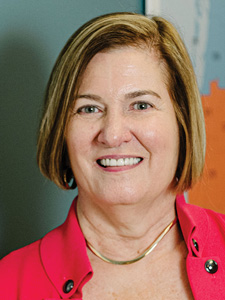
Juvenile Welfare Board of Pinellas County, Pinellas County
The Juvenile Welfare Board announces Michael Mikurak as Interim CEO, effective June 9, 2025. A prior member and Chair of the Board, Mikurak is a staunch advocate for Pinellas children and families and has always held JWB to the highest standards of accountability while promoting innovation, strategic thinking, and process optimization. With more than 30 years’ business strategy and supply chain management experience, Mikurak brings his rich business acumen and depth of knowledge to the role.
See this article as originally published at https://www.floridatrend.com/movers/2025-6/

Juvenile Welfare Board of Pinellas County, Pinellas County
After six years of service, Beth A. Houghton will retire as CEO of the Juvenile Welfare Board (JWB), effective July 11. Houghton leaves behind a legacy as an extraordinary leader and champion for children. Under her leadership, JWB successfully implemented a five-year strategic plan, met emergent needs during the global pandemic and major hurricanes, and balanced accountability with new program growth to ensure today’s funds are invested wisely to strengthen the lives of today’s children.
See this article as originally published at https://www.floridatrend.com/movers/2025-6/
